When you're shopping for the perfect bench cushion, one question keeps popping up: how thick should it actually be? It's not just about comfort (though that's huge!), but also about durability, practicality, and getting the best bang for your buck. After years of helping customers find their ideal seating solutions, I've learned that cushion thickness is way more nuanced than most people realize.
The short answer? Most bench cushions should be between 2-4 inches thick, but the devil's definitely in the details. Your perfect thickness depends on everything from how often you'll use the bench to whether it's facing harsh weather conditions. Let's dive deep into what really matters when choosing cushion thickness.
The Science Behind Cushion Thickness
Before we jump into specific measurements, it's worth understanding why thickness matters so much. When you sit on a cushion, your body weight creates compression. Too thin, and you'll feel the hard bench underneath within minutes. Too thick, and you might feel unstable or like you're sinking into quicksand.

The magic happens in what experts call the "comfort zone" - that sweet spot where the cushion provides enough support to distribute your weight evenly while still offering enough give to contour to your body. This zone typically starts at around 2 inches for most adults, but can vary based on the foam density and your personal preferences.
Standard Thickness Ranges
- 1-2 inches: Best for occasional use, lightweight applications, or when you need minimal profile
- 2-3 inches: The sweet spot for most everyday use scenarios
- 3-4 inches: Premium comfort for frequent use and extended sitting
- 4+ inches: Ultra-plush comfort, but may present stability challenges
Outdoor vs Indoor Considerations
Here's where things get interesting - location dramatically affects your ideal cushion thickness. Outdoor bench cushions face entirely different challenges than their indoor counterparts.
Pro Tip: Outdoor cushions typically need to be 0.5-1 inch thicker than indoor ones because weather exposure causes foam to compress faster over time.
Outdoor Bench Cushion Thickness
For outdoor applications, I usually recommend starting at 3 inches minimum. Why? Weather is brutal on cushions. UV rays break down foam structure, rain can cause compression issues even with waterproof covers, and temperature fluctuations cause expansion and contraction that gradually reduces loft.

Your outdoor cushion also needs to handle more diverse usage patterns. People might plop down heavily after a long day of yard work, or kids might use it as a jumping platform (not that we recommend that!). The extra thickness provides a buffer against these real-world scenarios.
Indoor Bench Thickness Guidelines
Indoor situations are more forgiving. A 2-3 inch cushion often works perfectly for dining benches, entryway seating, or bedroom benches. The controlled environment means less degradation over time, and usage patterns tend to be gentler and more predictable.
However, don't automatically go thin just because it's indoors. If you're planning to use that custom bench cushion for reading sessions or long conversations, invest in the extra thickness. Your back will thank you.
Foam Density and Its Impact on Thickness Choice
This is where many people get tripped up. Thickness and density work together, not independently. A 2-inch high-density foam cushion might actually provide better long-term support than a 4-inch low-density one.

Foam density is measured in pounds per cubic foot (PCF). Here's how it affects your thickness decision:
- Low density (1-2 PCF): Soft and squishy, requires extra thickness (3-4 inches) for adequate support
- Medium density (2-4 PCF): Good balance, works well at 2.5-3.5 inches
- High density (4+ PCF): Firm support, effective even at 2-3 inches
I've seen people choose ultra-thick cushions thinking they'll be more comfortable, only to discover they've got low-density foam that bottoms out after a few weeks. It's better to invest in quality medium-density foam at a moderate thickness than go cheap and thick.
User-Specific Factors
Weight and Body Type Considerations
Let's be honest - we're not all the same size, and that absolutely affects cushion choice. Heavier individuals need more thickness to prevent bottoming out, while lighter users might find thick cushions uncomfortable or unstable.
As a general rule, if you weigh over 200 pounds, consider adding an extra 0.5-1 inch to the standard recommendations. Under 140 pounds? You can often get away with slightly thinner options without sacrificing comfort.
Age and Mobility Factors
Older adults often prefer slightly firmer, thinner cushions because they're easier to get up from. Very thick, soft cushions can make standing more difficult. On the flip side, if joint pain is an issue, the extra cushioning of a 3-4 inch cushion might be worth the mobility trade-off.

Seasonal and Climate Considerations
Something most guides don't mention - climate affects your ideal cushion thickness. In hot, humid climates, thicker cushions can trap heat and become uncomfortable during summer months. Conversely, in colder regions, that extra thickness provides welcome insulation from cold bench surfaces.
If you live somewhere with extreme seasonal variation, consider getting two sets of cushions or choosing a versatile 3-inch thickness that works year-round.
Storage and Maintenance Factors
Thicker cushions take up more storage space - obvious, but worth considering if you need to store cushions during winter months. They're also heavier, which affects how easy they are to move for cleaning or storage.
However, thicker cushions often last longer because they have more material to compress before reaching their functional limit. It's a trade-off between convenience and longevity.
Special Applications and Unique Situations
Multi-Purpose Seating
If your bench serves multiple purposes - dining, lounging, occasional napping - lean toward the thicker end of the spectrum. A 3.5-4 inch cushion provides versatility for different activities and user preferences.
For specialized seating like corner floor cushions that might be used for meditation or reading, thickness becomes even more critical because there's no back support to rely on.

Aesthetic Considerations
Let's not ignore the visual impact. Thicker cushions create a more luxurious, substantial look but can overwhelm delicate furniture. Thinner cushions maintain clean lines but might look skimpy on robust benches.
Consider your bench's proportions. A thick, heavy wooden bench can handle a 4-inch cushion beautifully, while a sleek metal design might look best with a 2-3 inch profile.
Cost vs Value Analysis
Thicker cushions cost more - more materials, more shipping weight, more storage space. But they often provide better value long-term. A quality 3-inch cushion might last twice as long as a 2-inch one, making the higher upfront cost worthwhile.
Value Tip: Calculate cost per year of expected use rather than just upfront price. That expensive thick cushion might be cheaper in the long run.
Also consider replacement frequency. Thin cushions that need replacing every year or two create more waste and hassle than a thicker option that lasts five years.
Testing and Personal Preference
Here's something I always tell customers: if possible, test before you buy. Sit on different thickness options for at least 10-15 minutes. What feels comfortable for two minutes might feel different after longer exposure.
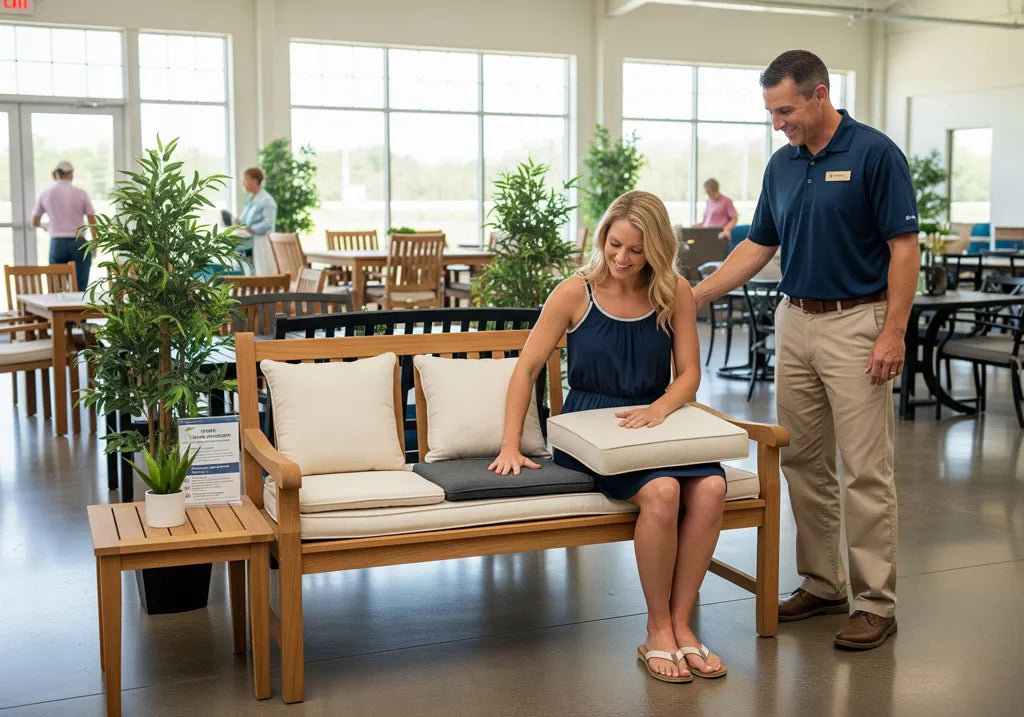
Pay attention to:
- How easy it is to stand up
- Whether you feel supported or like you're sinking
- If the edges feel stable when you shift position
- Whether the thickness feels proportional to the bench
Common Mistakes to Avoid
The "Thicker is Always Better" Fallacy
I've seen people order 5-6 inch cushions thinking they're getting premium comfort, only to find them unstable and awkward. There's definitely a point of diminishing returns.
Ignoring Foam Quality for Thickness
A 4-inch cushion with cheap foam is worse than a 2.5-inch cushion with quality materials. Don't let thickness be your only decision factor.
Not Considering Long-Term Compression
All foam compresses over time. That 3-inch cushion might become 2.5 inches after a year of use. Factor in this natural settling when making your choice.

Maintenance and Longevity Tips
Regardless of thickness, proper maintenance extends cushion life significantly. Flip cushions regularly to ensure even wear, store them properly during harsh weather, and invest in quality covers.
Thicker cushions actually benefit more from regular flipping because they have more material that can develop uneven compression patterns.
Future-Proofing Your Decision
Think about how your needs might change. If you're young and active now, you might prefer firmer, thinner cushions. But will that still work in 10-15 years? Choosing a moderate thickness (3-3.5 inches) often provides the best flexibility for changing needs.
Also consider whether you might want to use the cushions in different locations or on different benches in the future. Outdoor chair cushions might work on benches too if dimensions align.
Professional Recommendations by Use Case
Based on extensive customer feedback and industry standards, here are my specific recommendations:
- Dining bench: 2.5-3 inches (easy to get in/out, appropriate height)
- Garden/patio lounging: 3.5-4 inches (comfort for extended use)
- Entryway/mudroom: 2-2.5 inches (practical, easy to clean)
- Reading nook: 3-4 inches (comfort for long sessions)
- Occasional seating: 2-3 inches (cost-effective, adequate comfort)
Find Your Perfect Bench Cushion Thickness
Still unsure about the right thickness for your specific situation? At Rulaer, we specialize in creating custom bench cushions tailored to your exact needs. Our expert team can help you choose the perfect thickness based on your bench dimensions, usage patterns, and comfort preferences.
We offer thickness options from 2-5 inches in premium foam densities, all with weather-resistant covers designed to last. Plus, our custom outdoor cushions come with detailed thickness recommendations based on your specific climate and usage requirements.
Ready to upgrade your seating comfort? Browse our collection or contact us for personalized thickness recommendations. Your perfect bench cushion is just a click away!

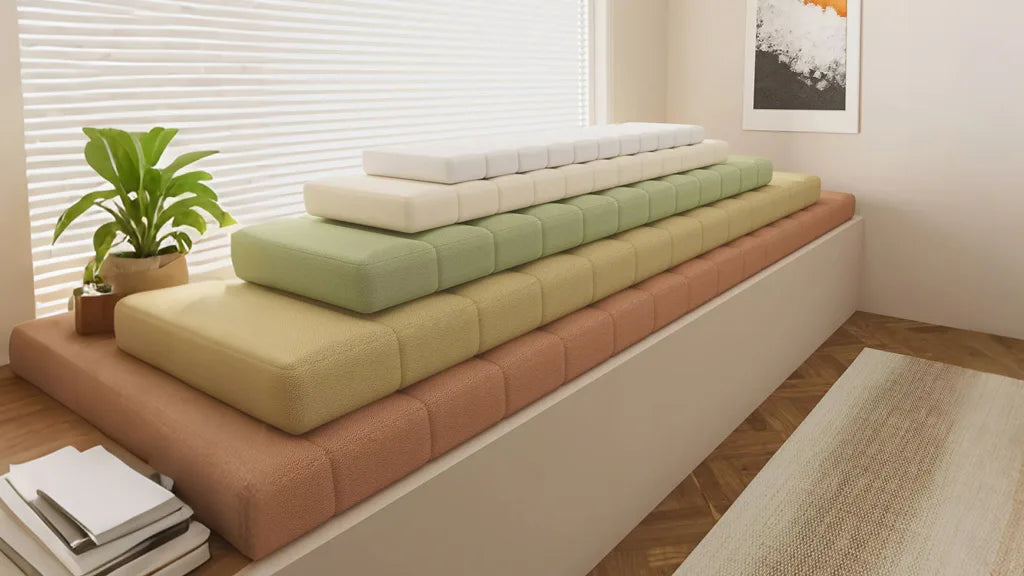
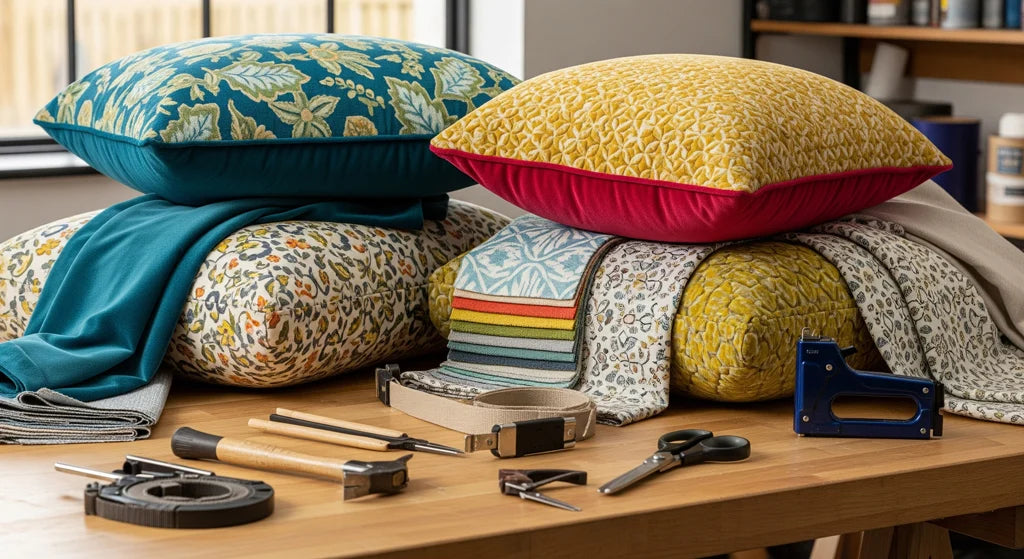
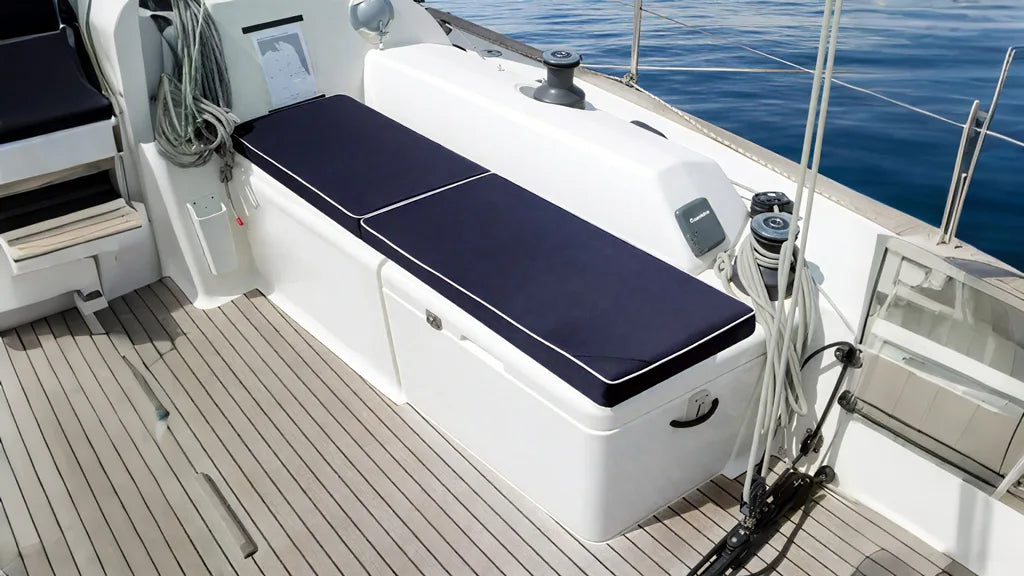
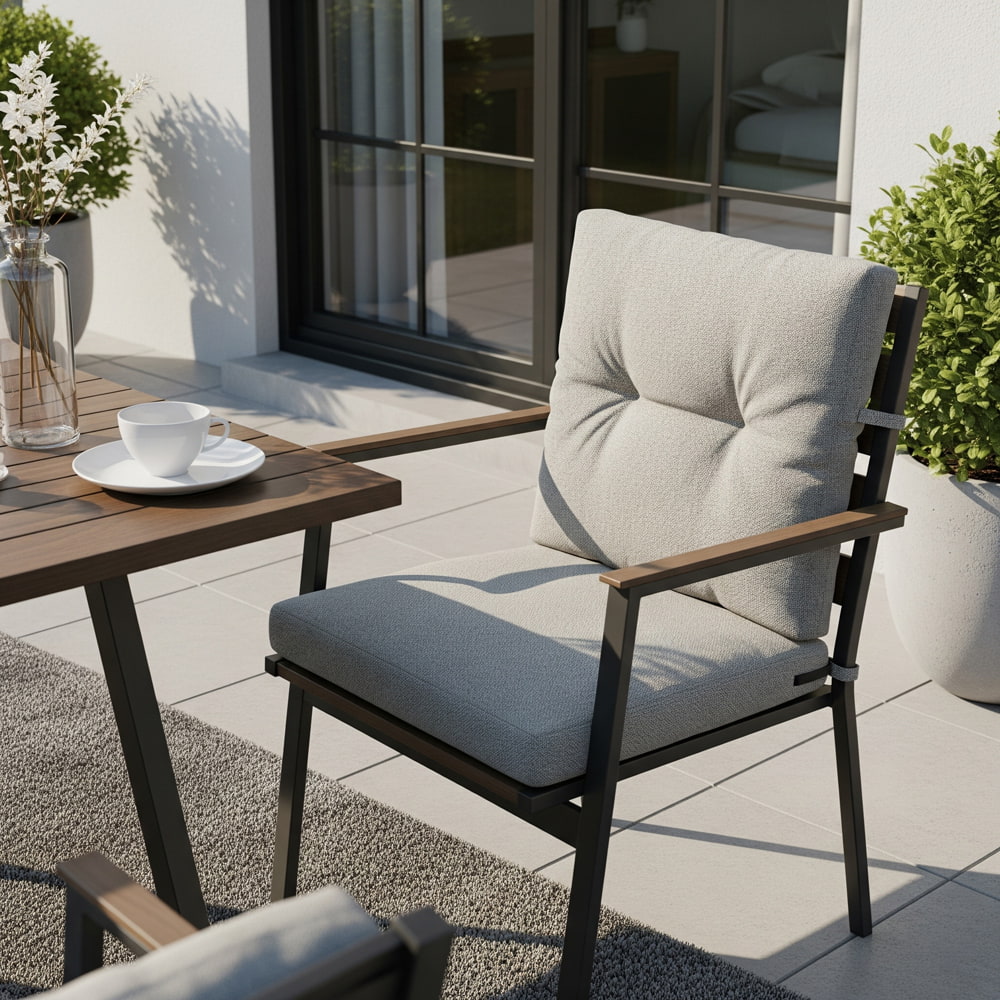
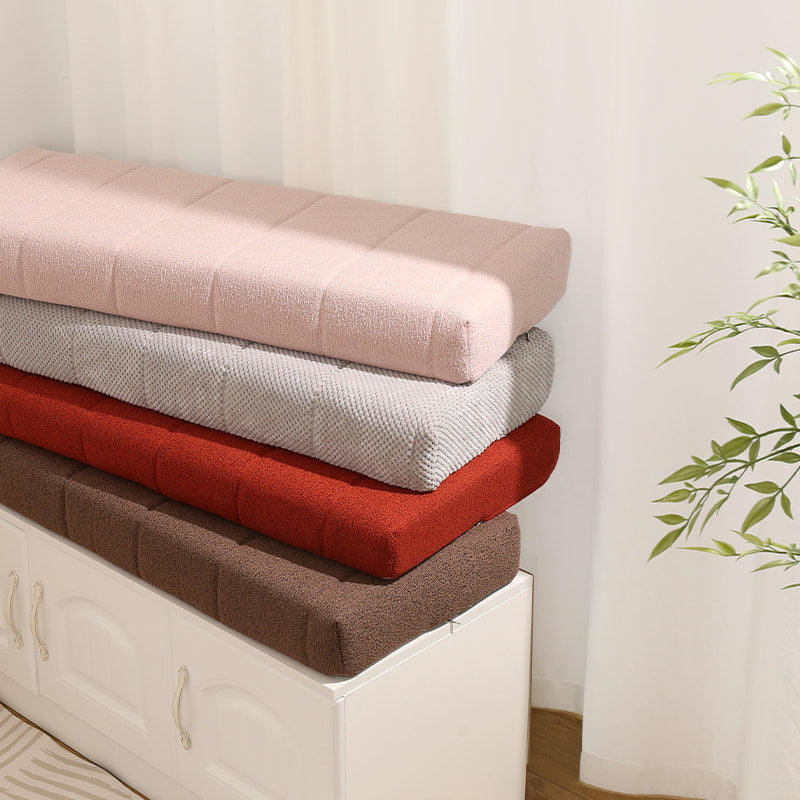

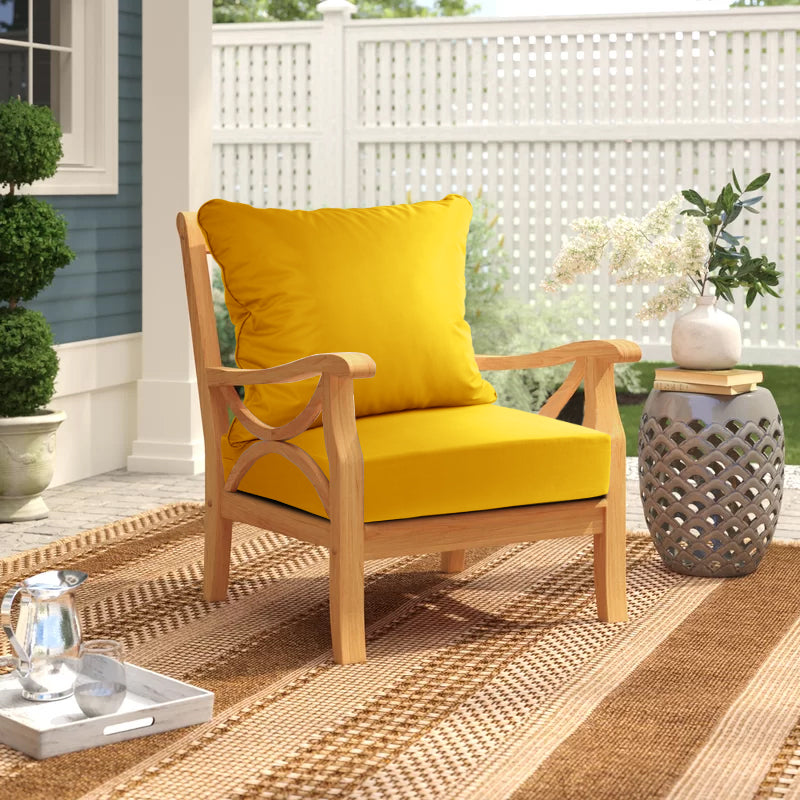
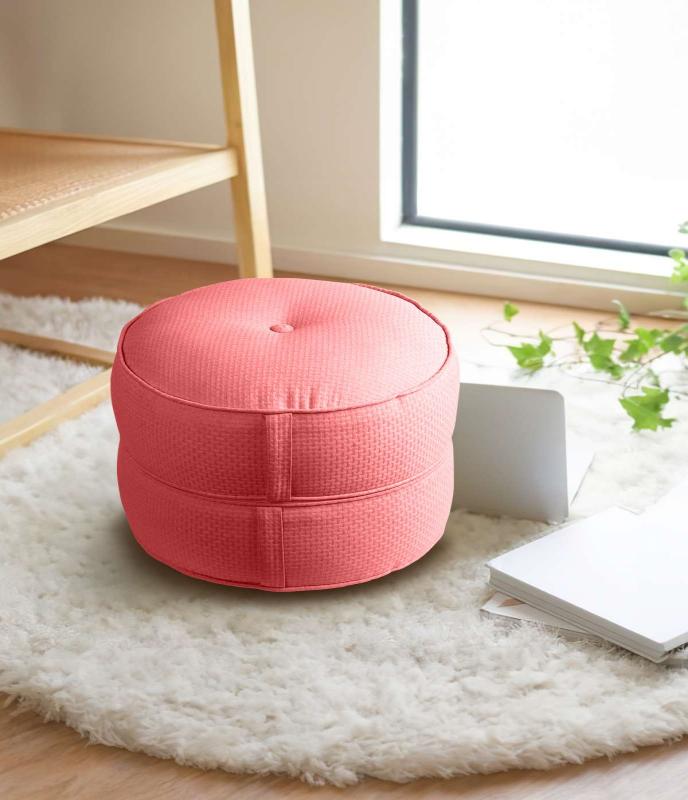
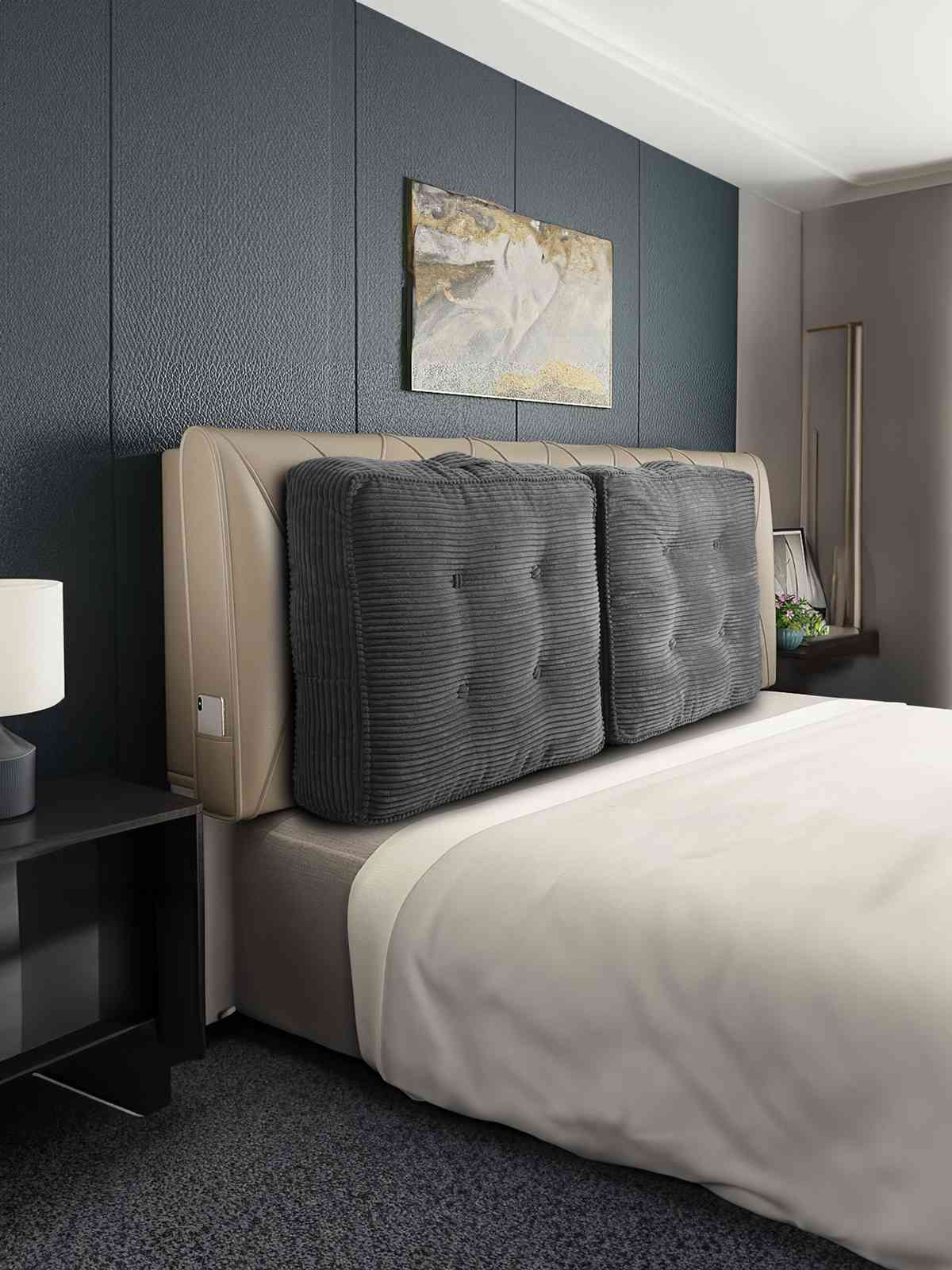
Leave a comment
All comments are moderated before being published.
This site is protected by hCaptcha and the hCaptcha Privacy Policy and Terms of Service apply.